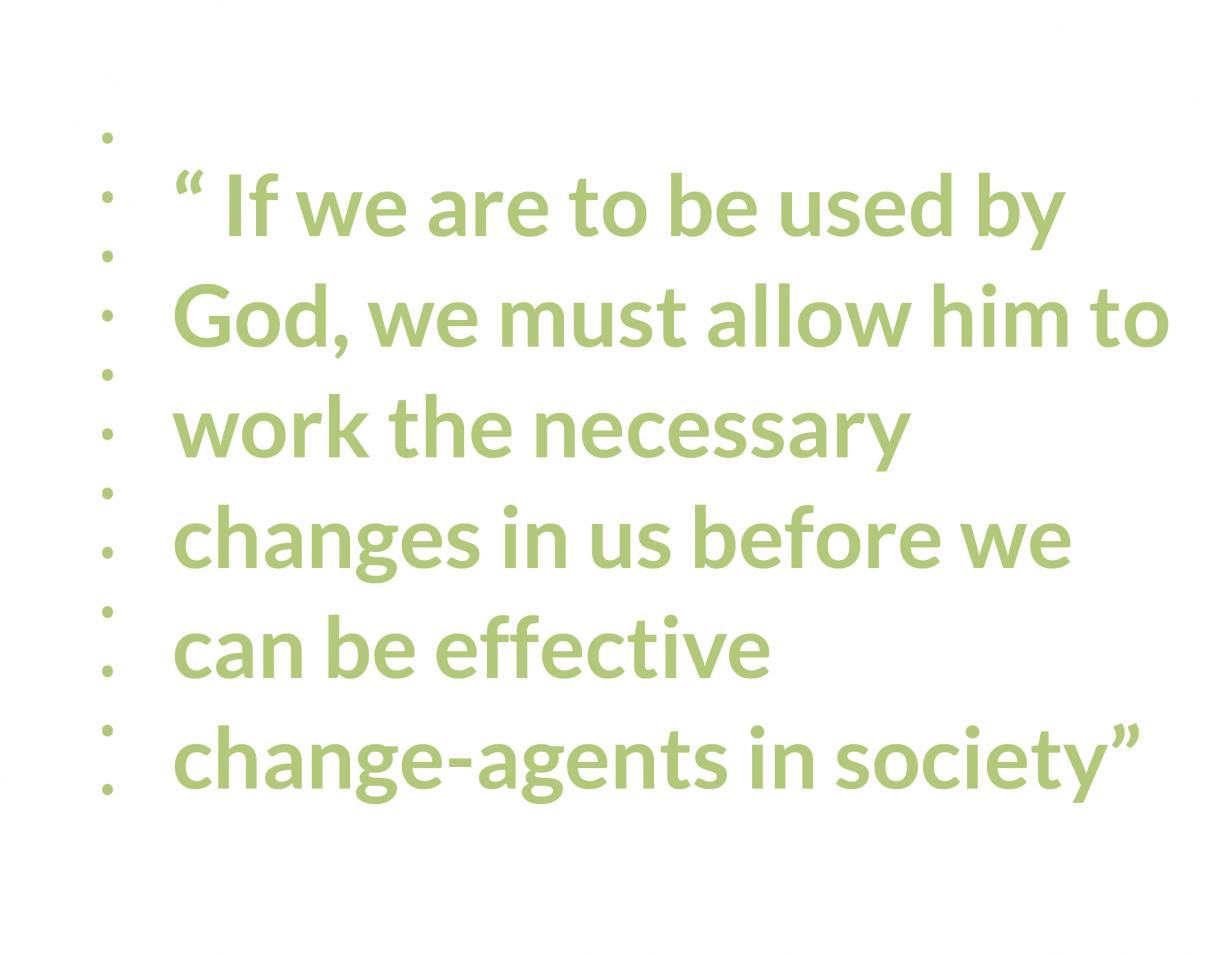
Don't Believe Your Eyes
My first experience of cross-cultural mission was in July 1991, following my first year of studying French and German at university. I joined OM’s Love Europe programme- an international conference of more than 3,500 people, followed by outreach in Austria, where I could both serve the Lord and practice my German. It was going to be great… except it was not!! Oh, it was great, but just not what I had imagined. I never made it to Austria – I was sent to Spain instead (seriously OM – ‘I speak German’). And when told I would be working with Muslims, I wanted to follow the Jonah plan and run in the opposite direction. Any chance of Belgium? After three days and nights in the belly of a clapped-out OM transit van (not as bad as a whale), we arrived in Malaga; then I was sent onwards to a Spanish city on the north African coast. No, not at all what I signed up for… but it changed my life.
We often have romantic ideas about mission and unrealistic expectations both of what we will face and how we will cope with the challenges. If we are to be used by God, we must allow him to work the necessary changes in us before we can be effective change-agents in society. For this, the book of Numbers is an instructive text.
We left Israel at Mount Sinai, where they received God’s instructions for holy living. In the first ten chapters of Numbers, they begin the outworking of this; the frequent repetition of the people acting ‘in accordance with all that the LORD commanded Moses’ (eg.1:54) gives a positive impression. We too may evaluate positively our response to God’s calling, self-revelation and instruction for holy living; but the real test comes when we interact with a real, not a theoretical, world. Such is the challenge of mission.
Where on earth are we going?
Numbers in Hebrew is called Bemidbar - ‘In the wilderness’. The central part of the book begins in 10:11, when Israel sets out from Sinai, and goes until chapter 25. At first glance, this whole period may seem a monumental waste - an eleven-day journey which took 38 years (see Deuteronomy 1:2-3). But on closer inspection, we see that perhaps this is the lesson of Numbers. It is not so much about what they do or do not achieve, as about who they are becoming. Jonathan Sacks highlights this when he says, ‘the journey is not just physical…It is psychological, moral and spiritual’. And then he adds, ‘It takes as long as the time needed for human beings to change’ (pg.3).
We are told little of the physical wanderings, almost all the narrative sections are marked by a series of seven rebellions or complaints - about provision of food and water, leadership challenges (provoked by jealousy and pride) or downright disobedience to God’s commands. But through it all we see God refining and moulding his people. It is sobering for us to realise that most of the barriers to us fulfilling our God-given calling and purpose are internal, not external. When we commit to obey God’s missionary mandate, we must also commit to a journey of transformation. 
‘Don’t believe your eyes’
Nothing illustrates this better than the infamous episode of the twelve spies (chapters 13-14), when the Children of Israel are on the brink of reaching their destination. There is much we can learn here, but I want to highlight what I think is the root problem - they trusted their own eyes. In 13:33 they explain what they ‘saw’. The problem was that their vision was distorted; the challenges were exaggerated, taking on almost mythical proportions. Their grasshopper mentality (which we learn about in Joshua 2:9 was not even correct) froze them in fear. Warren Wiersbe commenting on their response, warns ‘When your eyes are on yourself and your circumstances, you lose your perspective and say and do ridiculous things’ (pg. 57).
If we look at our world today, we see much that would make us pause in our mission efforts; we might even consider it prudent to do so - on-going pandemic, political instability, societal breakdown, economic uncertainty. But if we could yell across time to the Israelites on the border of the promised land, we might shout ‘Don’t believe your eyes!’. An important reminder for us then today, is not to trust in and be guided by what we see and understand (Proverbs 3:5 reminds us of the same). Rather, we need to learn to listen, to hear clearly and trust the One who speaks.
In our final article, we will come to the book titled in Hebrew ‘Words’ (Deuteronomy) and see how the journey across through the wilderness turned the Israelites into a listening community. For now, let us remind ourselves of the One who continually says ‘Go’, ‘Don’t be afraid’, ‘I am with you’.
Sources/Further Reading:
Leviticus: The Book of Holiness, Jonathan Sacks. Maggid Books, 2015.
Be Counted - Living a Life That Counts for God: OT Commentary - Numbers, Warren W. Wiersbe. Chariot Victor Publishing, 1999.
Bio: Andrew and Rosalia Elliott have been serving as Associate Missionaries in Spain. They are currently on extended furlough. Andrew is working part-time with the Antrim Church as well as continuing to do deputation for Baptist Missions.



